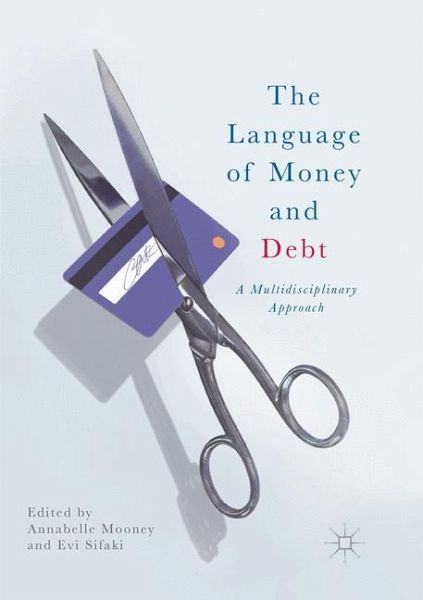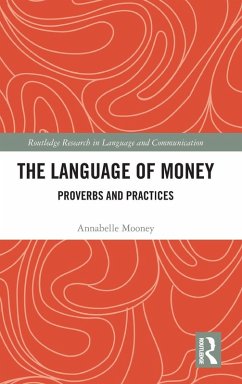
The Language of Money and Debt
A Multidisciplinary Approach
Herausgegeben: Mooney, Annabelle; Sifaki, Evi
Versandkostenfrei!
Versandfertig in 6-10 Tagen
76,99 €
inkl. MwSt.

PAYBACK Punkte
38 °P sammeln!
This book analyses the language that ordinary people employ when discussing money, debt and financial behaviour. It documents and critiques this language from an array of disciplinary perspectives, with chapters on children's books, government infomercials, television poverty porn, the emotional experience of being indebted, and more. In doing so, it addresses common underlying questions concerning definitions of money and value, and scrutinises how people construct, negotiate and articulate meaning in these domains. This wide-ranging edited collection will be of interest to students and schol...
This book analyses the language that ordinary people employ when discussing money, debt and financial behaviour. It documents and critiques this language from an array of disciplinary perspectives, with chapters on children's books, government infomercials, television poverty porn, the emotional experience of being indebted, and more. In doing so, it addresses common underlying questions concerning definitions of money and value, and scrutinises how people construct, negotiate and articulate meaning in these domains. This wide-ranging edited collection will be of interest to students and scholars of linguistics, sociology, communication, literature and anthropology.














